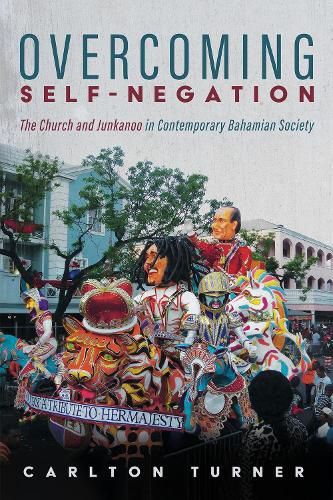Readings Newsletter
Become a Readings Member to make your shopping experience even easier.
Sign in or sign up for free!
You’re not far away from qualifying for FREE standard shipping within Australia
You’ve qualified for FREE standard shipping within Australia
The cart is loading…






This title is printed to order. This book may have been self-published. If so, we cannot guarantee the quality of the content. In the main most books will have gone through the editing process however some may not. We therefore suggest that you be aware of this before ordering this book. If in doubt check either the author or publisher’s details as we are unable to accept any returns unless they are faulty. Please contact us if you have any questions.
Bearing in mind the complex and multiple legacies of slavery and colonialism, particularly as they present themselves in the African Caribbean, Turner addresses what he sees as a fundamental but underexplored phenomenon: Self-Negation. He defines this as the tendency for persons living in the aftermath of slavery and colonialism to
not
like themselves, or to live with a dissonance in their identity. This problem is particularly seen in the relationship between the Church and African indigenous religious heritages within the region. Using the Bahamas as the site for qualitative research and theological reflection, he explores the complex relationship between the Church and Junkanoo, an African Caribbean street festival. Whilst Bahamians eagerly participate in both spheres, it is the common belief that Church is sacred and Junkanoo is secular, and the two should never mix. Turner theorizes that the theological root of the issue is the kinds of colonial hermeneutics that still inform church and cultural practices. Whilst Self-Negation is perpetuated by a hermeneutic of dichotomy, Turner proposes a counter, a hermeneutic of embrace, that takes African indigenous cultural heritages seriously and brings wholeness to the kinds of religious and cultural identities within postcolonial and post-slavery societies.
$9.00 standard shipping within Australia
FREE standard shipping within Australia for orders over $100.00
Express & International shipping calculated at checkout
This title is printed to order. This book may have been self-published. If so, we cannot guarantee the quality of the content. In the main most books will have gone through the editing process however some may not. We therefore suggest that you be aware of this before ordering this book. If in doubt check either the author or publisher’s details as we are unable to accept any returns unless they are faulty. Please contact us if you have any questions.
Bearing in mind the complex and multiple legacies of slavery and colonialism, particularly as they present themselves in the African Caribbean, Turner addresses what he sees as a fundamental but underexplored phenomenon: Self-Negation. He defines this as the tendency for persons living in the aftermath of slavery and colonialism to
not
like themselves, or to live with a dissonance in their identity. This problem is particularly seen in the relationship between the Church and African indigenous religious heritages within the region. Using the Bahamas as the site for qualitative research and theological reflection, he explores the complex relationship between the Church and Junkanoo, an African Caribbean street festival. Whilst Bahamians eagerly participate in both spheres, it is the common belief that Church is sacred and Junkanoo is secular, and the two should never mix. Turner theorizes that the theological root of the issue is the kinds of colonial hermeneutics that still inform church and cultural practices. Whilst Self-Negation is perpetuated by a hermeneutic of dichotomy, Turner proposes a counter, a hermeneutic of embrace, that takes African indigenous cultural heritages seriously and brings wholeness to the kinds of religious and cultural identities within postcolonial and post-slavery societies.